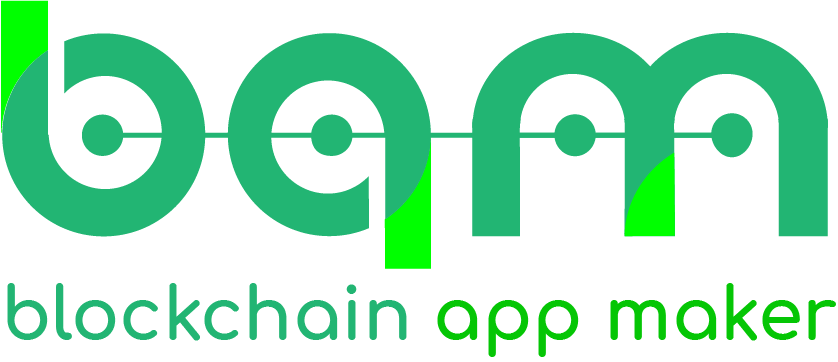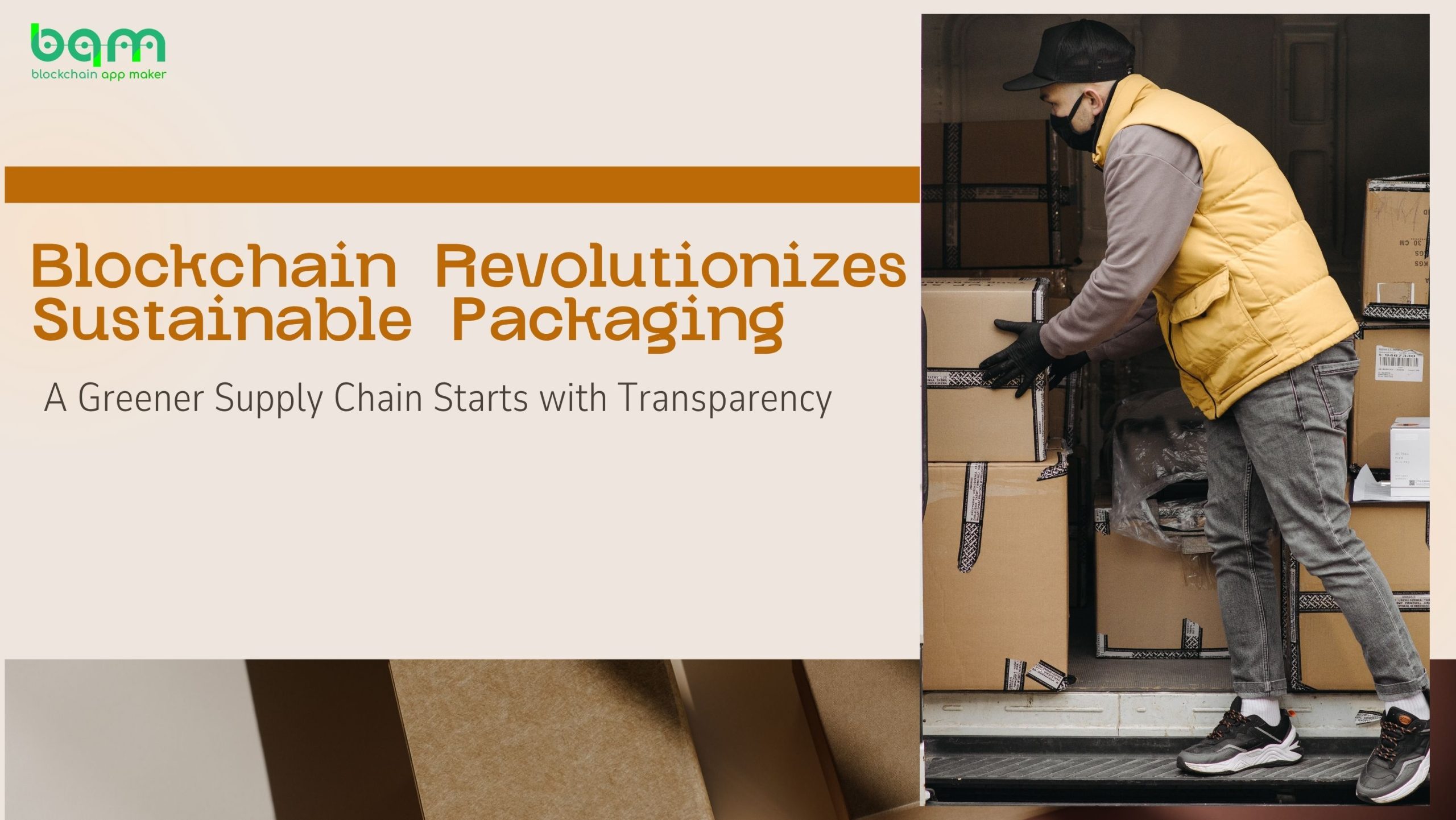Sustainable packaging is now becoming the norm worldwide. As people become more concerned about the environment and regulations get tougher, firms are finding new ways to be greener and reliable to consumers who care about the planet.
With climate matters growing and regulations changing, sustainable packaging is now essential for businesses everywhere. Both buyers and leaders are now expecting more environmentally friendly options.
Blockchain in Sustainable packaging is now shaping the industry as a major driver for change.
What is Sustainable Packaging?
The concept of sustainable packaging is using packages that do not hurt the environment very much. The process goes through all stages, from collecting resources to dealing with them once they become waste.
Key Characteristics of Sustainable Packaging:
- Made using natural materials, recycling or options that can break down into the environment
- Less use of raw resources and energy
- Created to be reused or recycled completely
- The entire supply chain is operated with low output of carbon.
- Guaranteed to be safe for the earth and safe for people to keep around
Why It Matters:
- Environmental Benefits: Fewer waste products, less plastic waste and fewer carbon emissions.
- Consumer Demand: 60% of today’s consumers are interested in buying goods from brands that use eco-friendly packaging (McKinsey).
- Regulatory Compliance: Following EU Green Deal and U.S. EPR rules, companies must now adopt environmental practices.
- Brand Value: Eco-friendly companies earn their customers’ trust and a strong loyalty to the brand.
So, we will now look at how blockchain is helping many industries move to more sustainable packaging.
-
End-to-End Supply Chain Transparency
The Challenge
Right now, packaging material supply chains are complicated on a worldwide scale. Finding out where materials are obtained, how they are turned into products and if they are eco-friendly is often a problem for companies. When these gaps exist, some companies might not report their ESG activities correctly, fail to comply with rules and lose their customers’ trust.
Blockchain as a Visibility Engine
With blockchain, every action on the packaging supply chain is recorded securely and instantly. The raw material suppliers, manufacturers and retailers are able to write their verified data into the decentralized ledger. Because of this transparency, the management and review of a brand’s sustainable practices have improved.
Example in Action:
Using biodegradable packaging, a food brand can keep track of the sources of plant-based polymers, confirm they were made using sustainable energy and see if they follow local environmental laws. All of this data is safely stored and able to be shared easily.
Impact:
- Less opportunity for falsely labeling or fraud in the supply chain
- Better chances for efficient and compliant checks with local and international standards
- Building trust in consumers through using QR codes on packaging connects to tracking information.
Data Snapshot:
From the World Economic Forum, we know that clear supply chains can make a company’s sustainability score up to 35% higher and raise consumer level of trust up to 15%.
2. Tokenized Incentives for Recycling & Reuse
The Problem
Regardless of ongoing international campaigns, less than 9% of plastic packaging is actually recycled. Consumers do not always have enough reason to recycle and companies have difficulty following their packaging after it has been sold.
The Blockchain Solution
Because of blockchain, reward tokens can now motivate people to handle their packaging or recycling responsibly. By using smart contracts, people collecting recyclables can collect tokens if they return containers as directed, scan special codes or use apps to prove their recycling.
Use Case:
Customers receive tokens using blockchain technology when they give back empty containers to a cosmetics company. You may decide to use these tokens for savings, grab NFTs or take action to help the environment—all of which are clear and open on-chain.
Benefits for Brands:
- Encourages people to send away goods for recycling and use again.
- Supports the creation of customers who are loyal and choose green brands.
- Supplies information about packaging after a purchase for circular supply chains
Industry Data:
Adding incentives and tracking on blockchain to the TerraCycle Loop encouraged customers to return their packaging 2.5 times more.
3. Combatting Greenwashing with Immutable Sustainability Records
The Trust Deficit
With so many brands advertising they are “eco-friendly”, people have become more doubtful when they see such claims that could be false. It can cause people to lose confidence which may also bring hefty penalties and bad publicity.
Blockchain as a Trust Mechanism
Because blockchain is immutable, what is written onto it (like carbon emissions, material origins and recycling) will never be edited or removed. A transparent and unchangeable environmental record is built, allowing the public to look at and verify the organization’s actions.
Applications:
- Documenting which methods are used for energy production
- Maintaining records of the carbon footprint for all batches of goods
- Recording the resources used and the amount of waste made while making packages
Avoid Risk:
Tougher rules about greenwashing in 2023 resulted in $500 million of fines being issued to companies in the two regions. The use of blockchain prevents compromises to the data.
4. Enabling a Circular Economy Through Smart Packaging
What is the Circular Economy?
A circular economy seeks to use materials in many ways by reusing, recycling and regenerating them. For packaging, it’s about reusing containers, setting up refills and making sure biodegradable substances are followed from creation to end.
Blockchain-Enabled Circular Packaging
Blockchain allows businesses to monitor every step of a package’s life cycle—from its shipment, back to the retailer, recycle and correct placement into the supply chain. Packaging data is directly posted on the blockchain once QR codes and IoT sensors are included, making recycling easier for logistics.
Advanced Use Case:
RFID tags are placed inside reusable plastic bottles used by a beverage company. The journey of every scan is recorded on the blockchain—showing details on washing, reusing and reducing emissions. Consumers get certificates that reveal the positive change they helped make.
Benefits:
- Extends both the time materials are used and the number of times they are reused
- It lowers consumption of materials and energy.
- Adds quantifiable elements to how sustainability is explained
5. Aligning with ESG Standards & Sustainability Reporting
The Compliance Challenge
Now, more and more large public companies are required to follow standards such as GRI, CDP, SASB and EU CSRD. To meet their needs, we must use detailed, reliable and live data.
Blockchain as the Reporting Backbone
Automating how supply chain data is gathered allows blockchain to ensure ESG reports are accurate, secure and on time. You can have smart contracts direct data uploads for information like the amount of CO₂ emitted, the waste collected and water used.
Integration Examples:
- Your ERP should be able to connect with blockchain for instant sustainability tracking.
- Make sure your supply chain uses smart contracts to signal emissions must be reported after items are shipped or packed.
- Automatically produce audit trails satisfied with regulations for your filings.
Competitive Advantage:
Businesses that can report well on ESG issues are 2x as likely to catch investors’ attention, Deloitte’s latest ESG survey found.
Real-World Examples: Blockchain + Sustainable Packaging in Action
| Company | Use Case | Blockchain Application |
| Nestlé | Verifying sustainable palm oil sourcing | Blockchain for full origin traceability |
| Unilever | Circular packaging and consumer recycling | QR-based tracking and token rewards |
| Plastic Bank | Incentivizing plastic collection in developing countries | Token-based rewards on blockchain |
| Loop | Reusable container logistics | Blockchain to manage reverse logistics chain |
How Blockchain App Maker Helps You Lead the Green Tech Shift
Here at Blockchain App Maker, we build platforms designed to help your business achieve its green objectives with blockchain. Our offers support both packaging companies, FMCG brands and logistics companies by covering:
-
Blockchain Supply Chain Platforms
Follow supplies, the creation of products and shipping to uphold green compliance.
-
Tokenization & Incentive Systems
Design and release eco-tokens under your brand to reward your customers and partners.
-
Integrated Mobile & IoT Devices
Bring QR codes, smart labels and IoT devices together to provide regular monitoring of your packages.
-
ESG & Compliance Dashboards
Make clear reports to support your business’s needs or regulatory rules..
Conclusion: The Future of Packaging is Smart, Circular, and Decentralized
Blockchain isn’t just used for cryptocurrencies; it helps drive sustainability. Thanks to its transparent, motivating and worldwide ESG standards, blockchain provides a total solution to the issues of sustainable packaging.
Join the brands already redefining what eco-friendly packaging looks like. Let Blockchain App Maker build your pathway to greener, smarter, and more trusted packaging.


